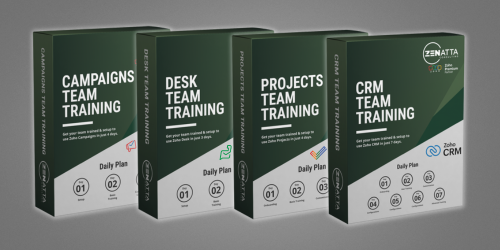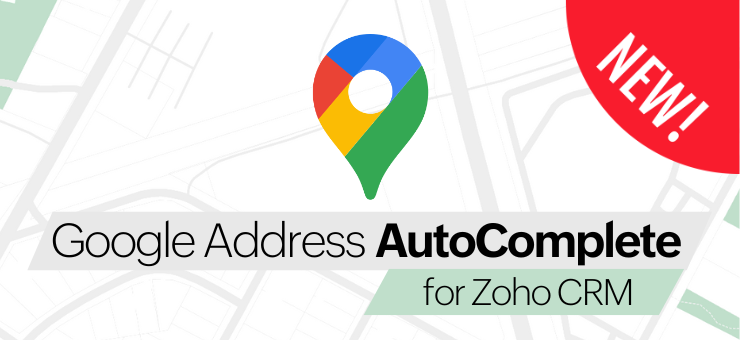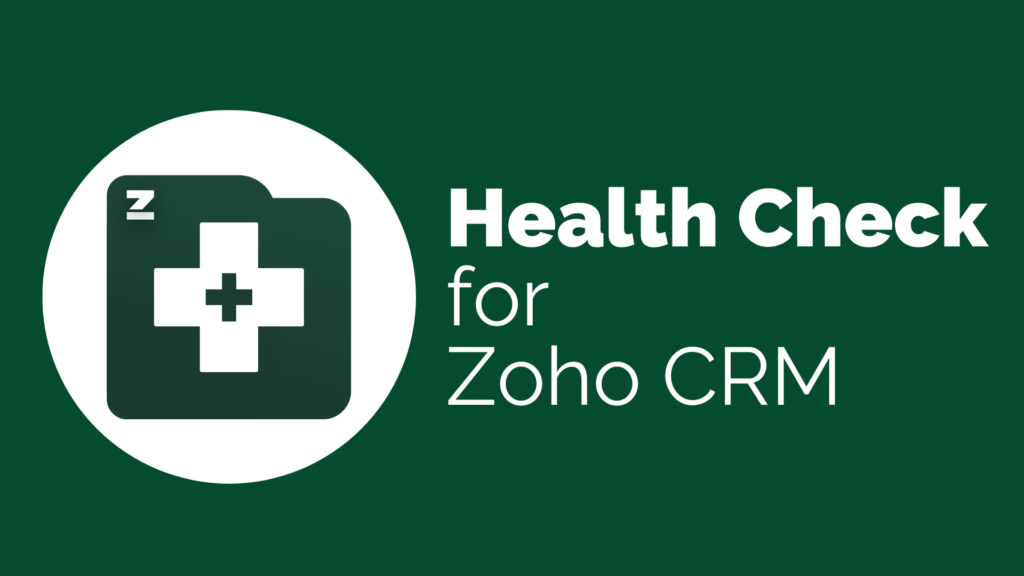If you watch the CRM Zen Show, you know that we share a new custom Zoho implementation we did for a client every week. Of the 52 implementations this year, here are what we thought were the top 10 for 2023.
XML Related List in CRM to Show Purchase Orders Related to a Deal
- In this implementation, we were working with a customer that uses Zoho CRM and Zoho Books to manage their sales processes
- They don’t carry any inventory, so all Sales Orders need to be back-ordered. This works great in Books, as we can create a Purchase Order directly from the Sales Order for this use-case
- However, in CRM, you can only see Estimates, Sales Orders, and Invoices from within the Deal view. This causes a problem when the customer calls in to check on order status, as the sales-person would need to access Zoho Books to answer
- To solve for this, we first used a custom Deluge function in Zoho Books to assign the Deal ID to the Purchase Order when it is created from a Sales Order (the Sales Order stores this for us natively via the integration)
- Then, because we have our Deal ID assigned to the Purchase Order, we can create an XML-related list that can display all relevant Purchase Order data for the Sales Orders related to that particular Deal
Automatic Document Generation via Zoho Books/Inventory Sales Orders
- In this implementation, our goal was to create an automation to generate specific documentation based on a Sales Order in Books/Inventory
- While you can create a PDF natively, it does not contain all of the information that you may want to view
- For example, the default PDF will not show, for each item, the quantity invoices, packaged, or shipped
- While that data doesn’t show up in the PDF, it is accessible via custom functions in Deluge, as you can read the related Invoice + Package data related to that Sales Order
- Once that data has been organized, we can write it to a template in Zoho Writer to create our own custom Sales Order document containing much more detailed information about the status of each product
Automated Follow-up Call Scheduler in Zoho CRM
- In this implementation, our goal was to automate an outbound calling cadence for prospecting Leads
- For this workflow, we’re looking at the Call Result field to determine the appropriate next steps
- If the Call Result of a logged Call indicates that we did not get an answer, a function is triggered to schedule a follow-up
- This function references a CRM Organization Variable defining how many weeks in the future we want to schedule the follow-up
- Using that amount of weeks, the function creates a Scheduled Call record for that Lead on the appropriate date
Zoho CRM Quote Document Generation for signing via DocuSign
- In this implementation, we are working to create a highly customized Quote document, and send it out for signature via DocuSign
- While this can surely be done with ZohoSign, in some industries or cases, using a more widely recognized tool like DocuSign can have benefits
- To kick this process off, we added a custom button that runs a mail merge similar to how we often generate documents
- Rather than forwarding this document to ZohoSign, we instead load it into DocuSign to create an Envelope. This Envelope can store multiple documents if needed
- In our implementation, this document is saved as a draft in DocuSign for review before sending. However, it could be automatically sent via the API
Selective Lead Activation for Account Based Prospecting
- In this implementation, our goal was to create a workflow for activating Leads for outbound prospecting without overloading any given Account that could have multiple Leads
- To accomplish this, we first defined a Lead Status to identify Leads in the queue for activation
- Then, we built a SQL table in Analytics that presents Leads in this status but filtered down to only show one Lead per account at a time
- Last, we wrote a scheduled function that activates Leads from this list on a regular basis so that they slowly dip into active prospecting workflows
ZAnalytics as a Data Source for Website Display
- In this implementation, our goal was to provide our client with a way to display success metrics on their website
- This includes Deals Won, Amounts Closed, etc
- This can be accomplished in a few different ways via Analytics
- One way would be to build a dashboard and embed a publicly available view on the website
- In this case, to give our client more control over the look and feel of the data on the website, we set up a custom API-accessible data table
- Then, we worked with their web developer to set up a daily scheduler that will push this data to their website
- There, it is formatted into some high-level KPIs to be displayed to prospective customers
Automatically close out Zoho Projects engagements when an account is canceled
- In this implementation, our goal was to create a quick and easy method to cancel a client account and then automatically close out all their active tasks in Zoho Projects
- To accomplish this, we set up a workflow rule in Zoho CRM that will trigger when an account gets moved to a status of “Inactive”
- This workflow rule will execute a custom Deluge script that will fetch all tasks in Zoho Projects for that client account
- We then filter those tasks down to only the “Open” statuses and update each of the tasks to a status of “Canceled”
- This allows for an easy way to simply toggle off a client during your offboarding process and have it trigger an automatic cleanup system to keep your task lists clean while requiring minimum effort
ChatGPT Integration for Zoho Cliq via a Custom Bot
- In this implementation, it is a build that we actually made for ourselves inside our company Cliq account
- We based our implementation off of the code we shared from Zoho on Last week’s show/newsletter
- First, we added a channel called ChatGPT where this Bot would live
- Then, we created the bot and connected it to our company ChatGPT account (you will need a paid account for this)
- Lastly, our users can easily subscribe to the bot and ask ChatGPT questions directly through our Cliq environment
ZInventory Automated Partial Invoicing based on Partial Shipments
- In this implementation, our goal was to automate the invoicing process based on the Shipment of Items on a Sales Order
- The caveat for this implementation was that not all Items on a Sales Order may ship at the same time
- To accomplish this, we set up a Zoho Flow to trigger each time a Shipment record is created (we used Flow here because there is no workflow trigger on Shipments within ZInventory)
- In Flow, we run that data through a function that matches each Item on the Shipment to that item on the Sales Order
- Lastly, we create an Invoice for those Items, at the Quantity identified on the Shipment
Account-based Marketing Analytics to Gauge Campaign Effectiveness
- In this implementation, we were working with a client that provides ongoing as-needed services to their customer base
- The goal of this build was to develop Analytics to help us understand the effect of specific Campaigns (email marketing, trade shows, etc) on ongoing revenue flow
- To accomplish this, we first created a SQL table to identify the first time a specific Campaign was associated to an Account (using the Campaign Source field in Deals
- Using this data, we can compare revenue to an Account before or after a specific Campaign was associated
- We can also run reports on total revenue before and after the commencement of a particular Campaign effort
We want to give a huge shoutout to both our developers and consultants for being the brains behind making these implementations become reality. And another shoutout to our amazing clients who picked us to help make these wants in Zoho become a reality.
Want us to implement a custom solution for you? Don’t hesitate to drop us a line, and we would be happy to see how we can help!










